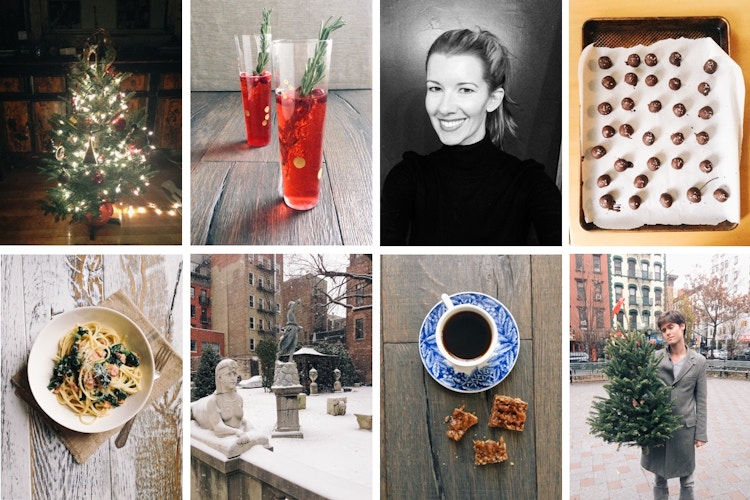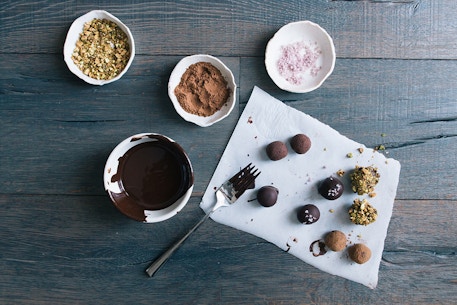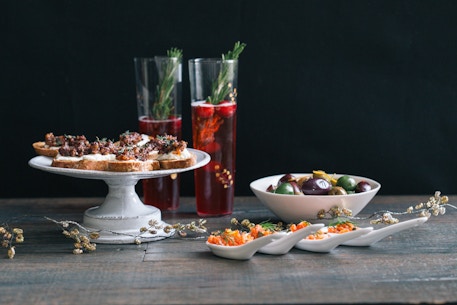Day 39: A Picture is Worth a Thousand Words...or is it?
"Our addiction to immediacy tempts us to willingly settle for accessible substitutes rather than waiting for what we really long for." -AJ Sherrill
I have a love/hate relationship with Instagram. On the one hand, it's my favorite mode of social media because it lacks the clutter and verbosity of Facebook and Twitter: it's just image after perfect image. Anytime I have a free moment (or, more likely, when I'm in the middle of work and want a distraction), I scroll through Instagram. It's the perfect escape. My reactions are varied - from delight (cute baby!!) to jealousy (ugh...she's in Paris?!) to inspiration (gorgeous food styling!) to hurt (bummer...I wasn't invited?). Then there's the obsession with peoples' reactions to my posts: How many likes did I get? Did they comment? If I'm not careful, my self-esteem can vacillate wildly based on the number of Instagram likes I receive in a day.
I mostly hate it, however, because Instagram gives the (false) impression that I am intimately connected to the lives of the people I follow. I know what she ate for breakfast! I know where they went on vacation! But in all honesty, it gives very little perspective into the nitty-gritty of what's really going on. It's a curation of life's highs, and even the ordinary moments - a latte or a snowy walk - become magical when the Instagram filter is applied.

The problem is, life isn't just a collection of highs. Sadness and struggle and everyday mundane moments (dishes, laundry, bills) are intricately woven into the fabric of our lives, making the beautiful moments that much more special. It's crazy to me when I catch up with a friend who I haven't seen in awhile, and find out that they've been going through something heartbreaking - a divorce, a miscarriage, depression - and yet, you'd never know from the smiling faces and pretty pictures on their Instagram feed. A picture is worth a thousand words, right? I'm beginning to think that's not so true after all.
I'm as guilty as anyone - both in my carefully curated posting, and in my obsessive scrolling. The collage of Instagram pictures above show the sweetest moments of the holiday season: picking out our little tree (and decorating it!), holiday baking, a snowy weekend and a hearty bowl of pasta, testing out Christmas cocktails for the blog...all of these moments are what makes the season so special and fun. But there is much left untold: tears shed and prayers prayed over Brandon's continued battle with Lyme disease, fears over how we are going to pay for medical bills next year, daily piles of dishes after recipe-testing or photo shoots, and moments of sheer exhaustion juggling all of the pieces and parts of this project.

Last night, our pastor AJ Sherrill said something really profound at church (which I quoted above): "Our addiction to immediacy tempts us to willingly settle for accessible substitutes rather than waiting for what we really long for." Because of our addiction to immediacy, we settle for that quick high of an Instagram like, or we live vicariously though others' images, rather than waiting (or going after) what we are really longing for. It's a question worth asking ourselves, especially in this Advent season. What are you longing for? What is the cry of your heart?
His sermon really challenged me to dig a little deeper: to stop settling for the immediate gratification (and false sense of community) of an Instagram like. Anything worth going after - be it the pursuit deeper relationships or a longtime goal - takes time, and a good bit of struggle and sacrifice. Things that aren't really Instagrammable. But that's OK - those moments are the ones that are shaping you into the person you're meant to become.
This isn't at all meant as a tirade against Instagram (unlike The New York Time's recent piece on the subject!) - it's just meant as a challenge to rethink our use of it. And on a larger level, as a reminder not to settle for online community. In order to share our stories, and our lives, we need time to connect in person - as whole beings, not just the pretty parts.
I am once again drawn back to the image of the table: as a for connecting and sharing (both food and words), and as a place of nourishment for the body and the soul. There's no replacement for this face-to-face time with those we love: let's not let accept any lesser substitutes.



